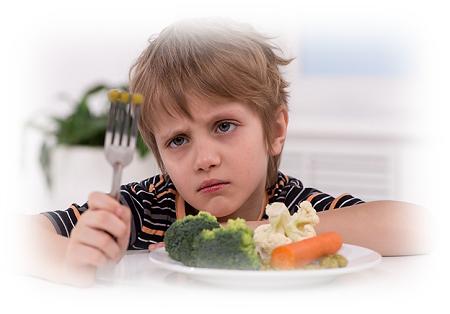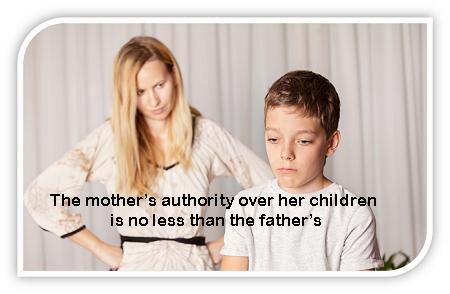Marriage, Family and the Civil Authority A Theological and Ethical Perspective
Marriage, Family and the Civil Authority A Theological and Ethical Perspective

In this series of articles, we will first examine what Scripture says about the intimate relationship between husband and wife, and the relationship between parents and children. Next, we will discuss the task of the civil authority with regard to these relationships.
The word ‘family’ has a variety of meanings. Its original meaning points to an intimate relationship between people, marked by shared responsibility. In earlier times, a ‘household’ included servants and extended family. In our time, the word ‘family’ is understood to include a variety of primary relationships, with or without children. In its more specific meaning, the term ‘family’ denotes the distinctive nature of the relationships between a man, a woman, and their (growing) children. In these articles, the terms ‘marriage’ and ‘family’ ought to be understood in this sense. ‘Marriage’, then, is defined as a covenantal bond between a man and a woman, directed towards the formation of a family. And ‘family’ is defined as a covenantal blood relationship between parents and children, directed towards their upbringing as mature persons. Used in this sense, the terms describe the distinctive nature of these relationships.1
That is also how these terms are commonly used. In the broader community, the term ‘family’ is strongly associated – and sometimes even identified – with the having of children, including sole-parent relationships.
This article aims to provide a systematic overview of what Scripture says about God’s purpose for the relationship between husband and wife, and the relationship between parents and children. It does not presume to present the last word. In the reality of political life, Christian politicians cannot apply Scripture in a Biblicistic manner. At the same time, they cannot do without a reflection on what Scripture says. Perhaps these articles will contribute to such reflection.
What follows will not be an idealized representation. Such an idealization is a philosophical construct, foreign to the Christian faith. In addition, within today’s society, marriage and family relationships are often greatly distressed. Here, idealized representations serve no useful purpose. Marriage can lead to profound joy, but also to unspeakable suffering. In the words of Lilian Rubin, husband and wife can sometimes be ‘intimate strangers’. Often, childhood experiences lead to lifelong scarring. The sorrow of broken marriages and broken families should never be discounted.
1. Instituted by God; Object of Human Responsibility⤒🔗
The origin of marriage is found in God’s work of creation. God created mankind, male and female, in His image (Genesis 1:27; cf 5:2; Matthew 19:4 and elsewhere). When God formed a woman from his rib (Genesis 2:22), Adam sang for joy:
This is now bone of my bones, and flesh of my flesh.Genesis 2:23
Regarding this work of creation, the author of Genesis declares: “For this reason, a man will leave his father and mother, and be united to his wife, and they will become one flesh” (2:24, Matthew 19:5, etc.). He draws an obvious conclusion from what he sees in his own world, one that is rooted in the natural mode of human existence. That conclusion is this: the origin of marriage is found in the work of creation. In the New Testament, Jesus affirmed that conclusion (Matthew 19:4). God has joined the man and the woman together (ch. 19:6). That is how God has instituted it, and this institution can be thankfully received, as a gift of God, for the wellbeing of mankind.

At the same time, this institution of God is also the object of responsible human conduct. Marriage is a possibility laid in creation, not a natural imperative. Adam, in his song of praise, freely responded to God’s gift. In the light of creation, being married and being unmarried are fully equivalent callings; the one is no greater than the other. Service to God is the highest and last goal of man; being married or unmarried is not. Christians confess that God has instituted marriage as a means to order the relationship between a man and a woman; they also acknowledge that the concrete marriage they are in is a calling from God.
The same applies, mutatis mutandis, to the family. True, there was no family before the Fall; even so, the family has its origin in creation. To the bond of marriage, God has joined the blessing of having children (Genesis 1:28).
Here too, the gift of God is at the same time the object of responsible conduct. Man obeys not the laws of nature, but the Creator’s Word. For mankind, fruitfulness is a blessing and a calling. In obedience to and dependence on God, man responds. Christians confess that both the family as an institution and the concrete family they belong to are a divine calling.
God has provided social structures and institutions – including marriage and the family – for our wellbeing. We may not, for ascetic or other reasons, look down on them. Sometimes, the apostle Paul is unjustly accused of an ascetic disdain for marriage and the family. However, Paul never regards being married as inferior to being unmarried. On the contrary:
...everything God created is good, and nothing is to be rejected if it is received with thanksgiving, because it is consecrated by the word of God and prayer.Timothy 4:4, 5
2. A Lifelong Covenant, directed towards the Formation of a Family←⤒🔗
Marriage has a twofold purpose. In the first place, God provided marriage as a covenant relationship between a man and a woman.
The creation of man implies a covenant relationship between God and man, and likewise between man and his neighbour. God intends human relationships to reflect the covenant between God and man.2 That is why marriage is characterized as a covenant. According to Scripture (Proverbs 2:17; Malachi 2:14), such a covenant is an exclusive, all-encompassing and lasting relationship, not just a conditional contract. It necessarily also reflects the covenant relationship between God and His people (cf. Jeremiah 2:2; 3:1; Ezekiel 16:8-14; Hosea 2:18-19, Ephesians 5:22-33).
This relationship binds man and his wife to loving mutual service: a joyful bond, in which each receives love, support and devotion from the other. This close bond is rooted in the creation of man and woman ‘in the image of God’ (Genesis 1:27), in the woman’s calling as ‘suitable helper’ (Ch. 2:18), in her formation from Adam’s rib (Ch. 2:21, 22), in their being ‘one flesh’ (Ch. 2:24). This all-encompassing relationship has a shared destination. The notion of human covenant relationships, embodied in the command ‘you shall love your neighbour as yourself’ (Matthew 22:39), finds its highest expression within marriage.
In the second place, marriage is directed towards the formation of a family. The human race is increased through marriage. God gives the blessing of fruitfulness (Genesis 1:28). Man does not create new life himself; he receives it from the hand of God (cf. Genesis 9:1; Psalm 127:3; 128:3).
At the same time, this blessing obliges man to responsible conduct. God commands people to cooperate with His purpose. Man may not distance himself from God’s blessing. Marriage and having children go together.
Already in the Old Testament, the blessing of children is valued very highly. Childless women felt diminished and rejected by God and people. The lack of an heir was a great misfortune. That is why the provision of levirate marriage allowed childless widows in Israel to produce an heir for their family (Deuteronomy 25:4-10).

In the New Testament, the same applies. The coming of Christ continues this creation mandate. In New Testament times, having children in marriage is still a blessing, a gift and a divine calling.
Of course, this does not in any way diminish involuntarily childless marriages. But God’s command that marriage is to lead to the formation of a family, may not be arrogantly set aside
Cultural Mandate←↰⤒🔗
This promise and calling to have children is closely linked to the broader cultural mandate. An acknowledgement of the former must imply a recognition of the latter. For Christians, this blessing and calling has an extra dimension. For marriage ‘in the Lord’ not only increases the human race; it also serves to build the church of Christ.
Which of these purposes takes precedence? The having of children may not be regarded as the foremost goal of marriage, as traditional Roman Catholic moral theology supposes. That would downgrade involuntarily childless marriages. ‘Success’ in marriage does not depend on having children. ‘Fruitfulness’ is more than just physical. Despite the pain of childlessness, such a marriage is still truly and fully a marriage. That is why the establishment of a covenant relationship between the partners is still given as the first purpose of marriage. In this relationship, sexual union has a place in its own right, aside from its procreative function.
This priority of the covenant relationship does not, however, lend legitimacy to a voluntarily childless marriage. Childlessness is not an option to choose, but an adversity to be dealt with.
Is there a third purpose for marriage: as a remedy against sexual immorality? Undoubtedly, since the Fall, marriage has served as a bulwark against immorality. Paul already pointed this out (1 Corinthians 7:2-9). In Corinth, false teachers promoted a gnostic contempt for marriage, leading some members to abandon their marriages. Having done so, some were overtaken by the flood of sexual license that engulfed the port city. In this situation, Paul reaffirms with apostolic authority that the place for sexual relations between a man and a woman is within, and not outside of, marriage. Realistically, Paul points to the dangers of sexual asceticism: marriage helps to restrain that. That is why this institution may not be disdained. It is far better to marry than eventually – having persisted in sexual sin – to burn in the fire of God’s judgment. To stay standing when you choose (or are called) not to marry, while remaining sexually pure in a fallen and dissolute world, you need the power of God. God has given marriage to channel human sexuality, and as a protection against sexual immorality. But it is incorrect to advance this protection as a third purpose of marriage. It operates on a different level to the forming of a covenant relationship and the raising of a family. These purposes exist independently of sin, and have been given with creation.
2.1. A Covenant Relationship directed towards bringing up Children to Maturity←⤒🔗
Similar to marriage, God has a twofold purpose for the family, as a relationship between parents and children.3
In the first place, the family is given as a covenant relationship between parents and their children, just as marriage is. Parents are called to love their children as themselves; and for children, parents are their nearest neighbours. It is an intimate, profound relationship, which also reflects and illustrates the bond between God and His people. God is Father, and His people are His children. Marriage reflects the bond between Christ and His church; the family does also. Family relationships make no sense without an understanding of the bond between God and His people.
The close relationship between parents and children implies that each is called to loving mutual service, for God has called them to help each other. Scripture emphatically teaches that parents have a responsibility to serve their dependent children, to provide for their well-being, to bring them up in the way of the Lord and instruct them in the wisdom of life.

Parents are to love their children, according to Scripture. They are often willing to provide generously with material goods; however, this giving must also extend to nonmaterial things: guidance, time, attention, help, space, patience, joy and hope. In this way, they can show something of God’s relationship with His people, and Christ’s relationship with His church. Such a bond between parents and children can be typified as a covenant relationship, and it has intrinsic value.
Likewise, children are to serve their parents. That was the intention of the fifth commandment (Exodus 20:12, Deuteronomy 5:16), and Jesus taught the same (Matthew 15:4-6; Mark 7:10-13). Failing to care for needy parents (whether materially or non-materially) is a breach of the covenant relationship. Love is shown by caring for parents in their old age. Paul encourages children to “first put their religion into practice by caring for their own ... parents and grandparents, for this is pleasing to God” (1 Timothy 5:4).
Maturity←↰⤒🔗
In the second place, the family is directed to bringing up children to maturity. That is why parents have authority over their children, and why children are bound to obey their parents. While the first purpose of the family highlights continuity within a covenant relationship, the second brings out the dynamic of this relationship. This dynamic is expressed in the growth of children, and their upbringing to maturity, equipping them for their cultural calling (Genesis 1:28). Otherwise, coming generations will not be equipped for their calling to stewardship.
A biological bond brings with it an educational relationship. We all live before the face of God, and are accountable to Him. Older generations must teach the younger about God’s promises and requirements. They must also instruct them in their duty to their neighbour, with whom they share God’s calling.
God himself has instituted this educational relationship around the poles of authority and respect. Parents are instruments in God’s hand. They have authority to decide, and power to make things happen. This power may not be abused; according to God’s purpose it must be used for sound and wholesome development. The origin of this authority and power is not found in the parents’ personal qualities, their expertise or their natural dominance. Nor does it draw on tradition or civil structures. It is founded in the creation order, and is their calling before God. That is what the fifth commandment proclaims and teaches. Scripture requires that this parental authority be honoured. Parents are bringers of the Word; parental authority and filial obedience takes place ‘in the Lord’ (Ephesians 6:1).
God has given parents authority to lead their children to maturity, in keeping with the goal for their lives. This authority exists as long as their children are dependent, and is directed towards their independence and maturity. For that reason, their authority is a ‘functional’ authority. It serves the attainment of their children’s goal, in agreement with the will of God. The test of their authority, then, is whether it serves that purpose. Still, their authority is more than just ‘functional’. Even when it falls short, their calling remains. God has not entrusted this special and intimate care of children to ‘ideal’ parents, but to people who have been ‘taken from the dust’.
Provision of Food←↰⤒🔗
This parental nurture of children includes provision of food and clothing, protection from harm, and the conscious and unconscious influencing of the child’s psychological, moral and spiritual makeup. One could understand it as a pedagogical quintet: protection, care, instruction (in knowledge and skills), introduction (into meanings) and initiation (into secrets). In these roles, parents can be described as guardians, gardeners, shepherds, guides and priests respectively.4
Parents can rightly be regarded as having ‘moral’ authority. Other relationships in society may also have moral authority over children, but then it is often (such as in schools) derived from the moral authority of parents. From the perspective of the creation order, parental authority within the family has precedence over other forms.

This second purpose (bringing up children to maturity) implies that from a social and ethical perspective, the family has a fundamental influence on the development of each person. It shapes his relationship with God, with his neighbour, with himself, with creation and with human society. Theological ethics addresses the core question: How ought one to deal with the child, in a way that agrees with the God-given goal of his existence? In the words of Gustafson, parents are charged with ‘moral stewardship’.
A wholesome upbringing takes place when parents willingly serve to promote and preserve good relationships between their children and God, their neighbour, themselves, creation, and the human society in which they live.
In summary, the family is the intimate relationship of parents and children which, in addition to its own intrinsic value, has the ultimate goal of fully realizing the destination in life of its children.
3. Eschatological Light←⤒🔗
The purposes of God for marriage and the family belong to the present world order. However, the coming age throws light upon them also. In Christ, the final goal of marriage and family is the coming Kingdom of God. For God is King over these domains of life also.
First, the Kingdom of God finds expression in marriage. It is like yeast that leavens the dough of marriage (cf. Matthew 13:33, Luke 13:21). Of course, this expression is fragmented and incomplete. It is also temporary - not only because it ends when one of the partners dies, but also because it is limited to this earthly life. At the renewal of all things (Matthew 19:28), the bond of marriage will disappear. None of God’s children will marry on the new earth. Still, until the day of His return, we must confess that Christ is King over this part of life. Marriage is not an autonomous entity; it is subject to His dominion.
Of course, marriage in itself does not reflect the Kingdom of God. It does so only in Christ. It is a fruit of salvation, obtained by Christ and imparted by the Spirit. Unless we share in Christ and His gifts, marriage can never be restored to God’s original purpose.
This eschatological light governs the living style of married couples. Paul says: “...those who have wives should live as if they had none” (1 Corinthians 7:29). Marriage is not independent of but subordinate to the coming of the Kingdom of God. Christ says that being newly married is no reason not to obey His call (Luke 14:20). His Kingdom transcends everything else:
If anyone comes to me and does not hate his father and mother, his wife and children, his brothers and sisters – yes, even his own life – he cannot be my disciple.Luke 14:26
And elsewhere:
I tell you the truth, no one who has left home or wife or brothers or parents or children for the sake of the kingdom of God will fail to receive many times as much in this age and, in the age to come, eternal life.Luke 19:29 30, cf. Matthew 19:29
Of course, this ‘hate’ is not a psychological state; here it emphasizes the radical character of the Kingdom.
Christ is not commanding us to end our marriages. Rather, He places them in the light of the end of this age. It may be necessary to remain unmarried for the sake of the coming Kingdom: “...some have renounced marriage because of the kingdom of heaven” (Matthew 19:12).
Jesus is certainly not saying that being unmarried is better than being married. He does, however, call for self-denial, for the sake of the Kingdom. For men who all too easily divorce their wives, that self-denial will mean faithfulness to one’s own wife. Consider the context of this instruction! Jesus has just been saying that divorce is not permitted. And Jesus’ word about self-renunciation is a reply to the disciples’ deflated reaction: “If that is the situation, it is better not to marry” (Matthew 19:10). Jesus points to the new dimension of His Kingdom: some would give up anything for its sake; even marriage, if necessary. Faithfulness to the end in marriage is not something that would cause a man to miss his destiny. Real fulfilment in life is to be sought in the Kingdom of God, and earthly desires must always be subject to that. For someone who expects the Kingdom, faithfulness to a difficult marriage is worth everything. The way we deal with husband or wife is governed not by what we would wish or expect here on earth, but by what we expect from God and His future.5

Significance←↰⤒🔗
Just as Jesus did, the apostles taught the all-surpassing significance of the coming Kingdom. It throws a whole new light on this temporal life. Paul speaks of ‘this present crisis’ (1 Corinthians 7:26) in which we live. The time is short (v. 29). The end is in sight, “this world in its present form is passing away”. Present tense. Not sometime in the future; it is passing away now. The light of the end shows that marriage is not permanent. It belongs to the things that will pass. And that has consequences for our decisions to marry. “Those who have wives should live as though they had none” (v. 29). Not in some kind of Stoic or Epicurean ataraxia, but in the eschatological light. Paul makes no judgments about being married or unmarried here; they are fully equivalent possibilities. The coming of the Kingdom does not set aside God’s purpose in creation. At the same time, Paul points to the fact that marriage concerns might be detrimental to one’s devotion to the Lord. Then it might be better not to marry: serving the Lord, in obedient dependence on Him alone.
The present crisis gives pause to a desire to marry. In the eschaton, troubled times lie ahead. Jesus said: “How dreadful it will be for pregnant women and nursing mothers! Pray that your flight may not take place in winter or on the Sabbath” (Matthew 24:19, 20, cf. Mark 13:17; Luke 21:23). For practical reasons, it is better not to marry. For those who are married, hard times are coming (1 Corinthians 7:28, 32-35). Just as for marriage, the final destination for the family lies in the Kingdom of God. The Fall has radically impaired the normative relationship between parents and children. In principle, Christ has restored this relationship. In Him, it now reflects the Kingdom of God.6 In faith, the bond of blood is now restored by the bond that He made through His blood. The covenant relationship between parents and children has now been placed under the yoke of Christ. Parents and children no longer wish to be served, but to serve (cf. Mark 10:45). They submit to one another out of reverence for Christ (Ephesians 5:21). In Christ, there is neither parent nor child (cf. Galatians 3:28).
No less than the covenant communion, the focus in the bringing up of children is marked by the finished work of Christ. By faith the family is a pedagogium, and Christ is the highest Teacher. Paul’s word, which speaks of bringing up children ‘in the training and instruction of the Lord’ (Ephesians 6:24), remains of the highest possible relevance.
Because the Holy Spirit puts into effect the restoration that Christ has given to His own, the Christian family serves the building of God’s Kingdom. It is one of the bases from which the Gospel goes into the world, a communion that understands its witnessing and diaconal calling.
4. The Distinctiveness of Marriage and Family←⤒🔗
Marriage and the family are intimate relationships. What then is distinctive about them?
4.1. Love in Marriage←↰⤒🔗
Marriage is characterized by love. It is rooted in an all-encompassing relationship of love between husband and wife. Adam jubilantly sang: “This is now bone of my bones, and flesh of my flesh” (Genesis 2:23). The Song of Songs is full of this love. There are three aspects to this all-encompassing natural love. First, there is the closeness that is directed towards the sexual otherness of the marriage partner. Second, there is the security that comes with fully belonging to the whole person of the other. The first is largely physical, the second is affective. Third, this all-encompassing love within marriage includes the shared destiny of the couple. Husband and wife value each other because of the shared calling they have received.

This all-encompassing love has been greatly affected by the Fall. In all kinds of ways, this natural love – sexuality, closeness and shared direction – has been torn apart. Christ, however, has restored the natural foundations of marriage. His sacrificial love permeates it. Love for the other, marked by sexual union, personal closeness and a shared purpose in life, is filled by a greater love, which transcends the person of the other. In Christ, marriage is not just built on natural love; more than that, it is filled with agapè.
Such a love is more than just a feeling. It is expressed in justice, defined by rights and obligations. These rights and obligations do not stand in the way of love; rather, they give expression to it. Love calls for a just relationship, and conversely, right and duty are founded in love. Each partner is entitled and obliged to a love that excludes all others. Both husband and wife have a right to the other’s loving care. In relation to these mutual rights and obligations, we will consider the aspects of monogamy, the order in the marriage relationship, and the lasting character of marriage.
4.2. Monogamy←↰⤒🔗
A just and loving marriage relationship embodies mutual rights and obligations, to the exclusion of all others. Husband and wife have a right to receive, and a duty to give, exclusive love. Each belongs exclusively to the other; their lives are joined. This is a monogamous relationship. In the beginning, God joined one man to one woman (Genesis 2:24; Matthew 19:5-6).
Sin has deeply affected this good institution of God, not just incidentally, but structurally. In the Old Testament, polygamy was common, as several instances show. While regulating polygamy (cf. Deuteronomy 21:15-17), the Old Testament nevertheless warns against it (Deuteronomy 17:17; 1 Kings 11:1-8), and over time there is a shift from polygamy to monogamy.
Christ reasserted God’s original purpose for an exclusive marriage, and He restores the relationship to that purpose. Paul illustrates the exclusivity of marriage by comparing it with the relationship between Christ and His church. Whoever is united with Christ cannot and may not be united with a prostitute (1 Corinthians 6:16-17). Just as Christ is bound exclusively to His church, man and wife are bound exclusively to each other (Ephesians 5:22-33).
Douma writes:
The progressive revelation of Christ in the New Testament makes it morally impossible to accept polygamy.7
Apostolic teaching consistently views marriage as a union between one man and one woman (1 Corinthians 7:2; Ephesians 5:28-33; Titus 2:4-5; 1 Timothy 3:2). The all-encompassing love of marriage is characterized by the right and obligation to exclusivity, legally embodied in monogamy.
4.3. Blood Relationship←↰⤒🔗
Just as the distinctive character of marriage is determined by love, so the distinctive character of the family is marked by a blood relationship.8 This institution has its origin in creation, and transcends all human efforts to change it. Children do not choose their parents, and parents do not choose their children. While parents do have their own responsibility, and may sometimes intervene at the beginning of a human life, they have no choice in the child that is born. It is given to them.
This fact determines the family’s unique character. God could have used other means to multiply the human race, but this is the way He chose to bind people together. It is ‘normal’, in accordance with the norm God laid down in creation. From ancient times, lineal descent has been traced from father to son.9
This blood relationship between parents and children has a moral dimension, which gives strength to the relationship. The sense of belonging has deep biological roots. It is an inescapable bond, even where family relationships are far from ideal. Having an ancestry is integral to our human identity. This bond of blood transcends our emotional state.10 No other institution compares with the family in its effect on human growth and development. Socially and ethically, the family is fundamental to our being human.

This covenant relationship between parents and children, based on blood, has been radically impaired by sin. Throwing off his dependence on the Creator, man wants to shape his own primary social relationships. But Christ has restored this family bond. The family is not an oppressive force, but a ‘given’ that is subject to the dominion of Christ, an order which God has laid in creation, one which may not be downgraded.
4.4. Order in Marriage←↰⤒🔗
Our theological and ethical reflection on marriage and the family also requires us to consider the order in these relationships. We begin with marriage, and go on to the family in the next instalment. We already pointed out that love in marriage finds its expression in a specific structure, marked by a monogamous relationship. Is there a hierarchical order within this structure, and is this order expressed in distinctive roles and tasks of husband and wife?
In Bible times, women were subordinate. The husband led, and the wife followed. When the covenant community gathered for worship, the men represented the women. At certain times, women, and not men, were ceremonially unclean. Jewish tradition continued this subordination of women. In New Testament times, a similar ordering was evident. In the words of the philosopher Seneca: men are born to rule, and women to obey. He also regarded women as morally inferior to men. On the whole (though not exclusively), society had this rule: the husband was the ruler of the household, and the woman was to submit to her husband. Early Christians simply followed the cultural patterns of their time. Paul urges women to submit to the prevailing order (Ephesians 5:22, 24; Colossians 3:18). They must respect their husbands (Ephesians 5:33), who are heads of the household (1 Timothy 3:4, 12). Peter impresses upon women that the Gospel is served by their submission to the social order of the day (1 Peter 3:1).
This order in the family extended to the congregation. Here too, women must submit to the prevailing order. If they have any questions, they must ask their husbands at home. This, says Paul, is consistent with the law and good morals; it is disgraceful for a woman to speak out in the assembly (1 Corinthians 14:34-35). She must learn quietly, and in full submission. A woman ought not to teach or have authority over a man. Paul also draws on the creation order: Adam was created first, and then Eve; and it was Eve who first gave in to temptation (1 Timothy 2:12-14). Scripture itself sets out an order in the relationship between husband and wife.
In addition to this line of submission, we see another line in the Bible. Both man and woman are created in the image of God. Both have been given dominion over God’s creation. The woman too must fill the earth, and rule over it (Genesis 1:28). Both man and woman fell into sin. Both need the grace of God. Before God, they have equal value, and are equal in their humanity.
The mother’s authority over her children is no less than the father’s. Scripture is clear about that. The woman has authority, not just over creation and over her children, but also over her husband (cf. 1 Corinthians 7:4).
This fundamental equality between man and woman is reasserted with greater force in the new creation. Christ’s restoring work extends to the relationship between husband and wife. Equality is not an object of struggle, but a gift in Christ. In line with God’s promise, both men and women receive the Holy Spirit (Joel 2:28-32). Unusually for His time, Jesus paid special attention to the position of women, speaking out against the prevailing male-centred view (this is especially clear in the Gospel of Luke). In Christ, there is neither male nor female (Galatians 3:28; 1 Corinthians 12:13; Colossians 3:11). Through faith, both find their own place in the Kingdom of God, transcending their relative position in the prevailing culture. As members of the body of Christ, and in Christ’s love, they submit to each other. Paul mentions women who pray and prophesy (1 Corinthians 5:11), and women who contend with him for the Gospel (Philippians 4:2-3; Romans 16:1) The first of these two lines is clearly linked to cultural-historical development. Paul points to creation, to prevailing custom, and to what ‘nature teaches’. The second line, however, points only to creation and to salvation in Christ. This does raise the question: why does the second line not do away with the first?
To begin with, the renewed position of women cannot and may not be realized through revolution. The apostles did not proclaim a new social order, but salvation in Christ.

In addition, some elements of the first line – those that draw on the order of creation – have lasting validity. God created man first (1 Timothy 2:13), spoke to him first, and heard his reply first. He was the first to receive the task to tend and keep the garden (Genesis 2:15-17), and he was given a suitable helper (Ch. 2:18). The woman was taken from the man (Ch. 2:22-23), was given her name by him (Ch. 2:23). The man joins himself to his wife (Ch. 2:24), and is the first to be called to account after the Fall (Ch. 3:9). There is an order to be seen in the creation story. The coming Kingdom does not set that order aside. There is no superiority of the man in the Bible; there is, however, a priority in responsibility. In this order, there is no ‘greater’ or ‘lesser’, no ontological ranking. A competitive struggle for superiority came with the Fall. The man aims to dominate (Genesis 3:16), in disobedience to God’s command. The woman has a sinful desire to have power over her husband (Ch. 3:16, cf. Ch. 4:7). What God says about the desires of the man and his wife after the Fall is not a divine institution; rather, it describes the corruption of relationships because of sin. God’s creation order is obscured by the Fall. This is shown, for example, by the Old Testament practice of polygamy, and the treatment of women as chattels.
Once must, therefore, take care with the first line (the male leadership role). Notions that are simply cultural-historical cannot and may not be regarded as normative. But in setting aside what is changeable, it is important not to discard what is of lasting validity. This includes that fact that God spoke to the man first. He must understand his first responsibility with regard to God’s promises and commands. While there is no ontological ranking; there is still a functional ranking.
Order←↰⤒🔗
According to God’s purpose, there is an order within marriage. This God-given order is wholesome; it makes for wholesome leadership within a relationship of equals. Leadership has nothing to do with domination, and everything to do with service. In this, Christ set us an example. He was equal to His brothers in all things, even while He was their Master. His rule was marked by the power of love. His attitude of service lays the foundation for the mutual service of husband and wife. Without Christ, there can be no order in marriage that answers God’s purpose. Without Christ, any discussion about headship and submission is doomed only to reinforce the power of sin. A marriage relationship that in Christ answers to its purpose leaves no room for either partner to demand a certain division of tasks. When Paul calls the husband the head of the wife, he doesn’t attach any rights to this position; instead, he directs the husband to serve his wife in love.
Caring for a family is the shared task of husband and wife. Within their all-encompassing calling towards the Kingdom of God, this is their first responsibility. Scripture emphasizes the importance of this task. It speaks highly of the woman’s calling in her house (Proverbs 31). Hence, parents may never see their responsibility to care for their children as an obstacle to their own development.
4.5. Order in the Relationship between Parents and Children←↰⤒🔗
Just as for marriage, the relationship of love between parents and children is marked by a certain order, one which embodies mutual rights and obligations.
Scripture shows that parents, as representatives of God, reflect His glory. The Lord has placed them in a special office, having authority over His children (who are at the same time their own): Honour your father and your mother (Exodus 20:12; Ephesians 6:2). Parental authority is a gift of God, and bound to the person of the parent. It is also an appeal to serve the goal for which God has granted this authority. The fifth commandment is one for parents no less than for their children. The Lord calls them to be worthy of parental honour.
Fathers and mothers equally reflect the glory of God to their children. Scripture honours mothers; sometimes, they are even mentioned first: Each of you must respect his mother and father (Leviticus 19:3). At the same time, Scripture highlights the father’s position as prophet, priest and king. In being called ‘father’ he bears the honour, and the responsibility, of reflecting the Fatherhood of God.

The fall into sin has fundamentally affected this unity of person and office. The office-bearer became a rebel. However, the Gospel tells us that in Christ, through the working of the Holy Spirit, this image of God has been restored. In all their faults and failures, parents are comforted by this Gospel. In Christ, parents may again be the hands of God, reflecting His glory and representing His Fatherhood. The hands of fathers and mothers lead children to God. To put it differently: believing parents are the face through whom God the Father shows Himself to His children. Parents also reflect Christ the Son, the perfect image of the Father, in His threefold office. They are prophets, passing on the Word of God; priests, devoting themselves to God and their neighbour – their children! – in prayer and blessings; kings, bearing His authority and expressing it in service. Parents reflect the Father and the Son; they are also the Spirit’s instruments in bringing salvation to covenant children. Parents are covenant parents of covenant children. Their parenthood operates within the Kingdom of God. Obedience to the commands of the Kingdom brings blessing to the family. The ark of faith that Noah built served as a great blessing for his family (Hebrews 11:7).
Parenthood, however, is not an end in itself. It must serve the Kingdom. Abraham was called to sacrifice his son to God; likewise, covenantal obedience within the family demands radical self-denial (compare Matthew 10:35-36).
Within the family, children must show reverence and due regard for their parents. Nowhere does Scripture allow an end-point for this reverence. It remains for life. The way in which this reverence is expressed, however, is influenced by the situation: age, physical or psychological condition, and the capacity of parents to exercise their role. The expression of this reverence may vary: its quality remains the same. It is a reverence for the person of these God-given parents. They are to be received and accepted from the hand of God.
Parents who misuse their authority put their children in a place of tension between reverence and contempt. Even then, the Lord still requires love and respect. Children must always obey God rather than their parents (Compare Acts 5:29); still, they ought always to honour their parents’ calling. In such broken situations, their reverence will be directed to the office, rather than the person of their parents.
4.6. The Position of Children←↰⤒🔗
The position of children with regard to their parents is governed by their position before God. Every child has been created in the image of God, and is fully human, regardless of its physical or psychological situation. With all its flaws, every childhood reflects and may express the glory of God (Psalm 8:3). Children born within the covenant are special objects of God’s love and faithfulness. He comes to them, requiring faith and repentance. Children who do not show love to God bring great grief to their parents. Scripture portrays children as dependent, small and under guardianship, having a right to protection. Christ Himself taught us this (Mark 10:13-16). The worth of children does not lie only in their future as adults; they have intrinsic, present worth as persons in their own right as well.
One important way children honour parents is through obedience (compare Ephesians 6:1; Colossians 3:20). This is no slavish submission, but an expression of respect for their parents’ God-given position. The form this obedience takes will depend on the age of the child.
Sin, however, has seriously damaged this position. Every child is conceived and born in sin, inclined by nature not to put God first. It will resist the parents’ authority. Within the covenant, however, young children are sanctified in Christ. God calls them to faith and repentance, and Christ brings restoration to their childhood. He has fully obeyed the fifth commandment, and borne the punishment for transgression against it. He sanctifies our childhood also. To children living within the covenant, God extends the promise and the demand of His Word.

4.7. The lasting character of marriage←↰⤒🔗
Love within marriage finds expression in rights and obligations. It demands justice, and at the same time provides the roots for justice. This justice within marriage implies both the obligation of and right to mutual faithfulness between husband and wife. Such faithfulness is part and parcel of the covenantal character of marriage. For what is love without faithfulness? Both the origin and the lasting character of marriage lie in the will of God. God hates unfaithfulness of a man towards the wife of his youth (Malachi 2:15-16). Earthly marriages are governed by heavenly commands. The will of God regarding marriage is expressed in the seventh commandment (Exodus 20:14), and Christ, because of the hardness of men’s hearts, proclaimed it anew. He stripped it of the human customs that blunted its force. Christ returned to the core of the command, God’s creation purpose: “What God has joined together, let man not separate” (Matthew 19:6). He also penetrated to the depths of human existence (Matthew 5:27-30). No-one is excused before God. The apostle Paul applied the word of Christ in his instructions to the church of Corinth (1 Corinthians 7:10-11, 27, 39).
Adultery may be understood in three ways:←↰⤒🔗
1. In its broadest sense, adultery may be seen as a disregard for the divine institution of marriage in general. Some specific instances:
- Where two people of the same sex form a ‘marriage’ bond, because of sexual attraction, a desire for mutual companionship and a shared destination in life, there is disregard for the divine institution of marriage. Such a bond is not based on God’s purpose for love within marriage, and conflicts with it.
- Where a man and a woman undertake a de facto relationship without honouring its legal expression, because of sexual attraction, a desire for mutual companionship and a shared destination in life, that too is a form of adultery. It sets aside the manifestly public character of this institution of God.
2. In a narrower sense, adultery is a disregard for the specific marriage in which one is living. “Anyone who looks at a woman lustfully has already committed adultery with her in his heart” (Matthew 5:28). Anyone who sets his desire on someone other than wife or husband is already an adulterer.
3. In its original and most restricted sense, adultery is having sexual relations with someone other that one’s own husband or wife. This can happen within an existing marriage; it can also happen when the bond of marriage has been formally dissolved.
In ancient Israel, a man could give his wife a letter of divorce, and separate from her. This would not, however, end their marriage in the sight of God. That would happen when one or the other began an intimate relationship with a third party. Jesus said:
Anyone who divorces his wife, except for marital unfaithfulness, causes her to become an adulteress, and anyone who marries the divorced woman commits adultery. Matthew 5:32
While he may not have played an active part, the husband was still a party to the adultery. He created the conditions for it, and shares in the guilt. By divorcing his wife, he sins against her. And he adds to this evil if he then makes reconciliation impossible by marrying another. Having sent his own wife away, he marries another woman. That would be adultery in its most direct sense. Scripture points to two grounds for divorce. The first is ‘fornication’, the act of sexual relations with someone other than one’s own husband or wife. In such situations, asking for a divorce is not ethically wrong. Still, the first path to follow is that of reconciliation and of restoration of a broken relationship. Did not the LORD God show His love to an adulterous covenant people?
The second ground Scripture mentions is willful desertion. In such a situation, says Paul, let him leave (1 Corinthians 7:15). In this case, a believing wife is no longer bound: she is free to marry another. Paul does not appeal directly to Jesus’ words, but – with apostolic authority – gives his own judgment. This Pauline concession (free to remarry after willful desertion) may surely be applied to analogous situations.

Having said that, one must be careful with the expression ‘grounds for divorce’. There can never be any ‘grounds’ to set aside what God has ordained. The first calling will always be for husband and wife to restore the broken relationship by way of forgiveness and reconciliation. Still, there is a place for this term. It points to two kinds of concrete situations where divorce may legitimately be sought or accepted. And it keeps us from using all kinds of vague terminology to justify the ending of a marriage relationship.
Finally, we should remember that Scripture does not say that divorce is impossible. In a fallen world, divorce does happen. Christ’s command, then, is not a legal stipulation, but a rule of the Kingdom. In our society, the civil authorities cannot simply apply the full force of this command. It would be a praiseworthy goal, but in a society where so few people are led by the rules of the Kingdom, this would result in untenable situations. We do well to understand that Christ’s prohibition of divorce rises above the sphere of civil justice. At the same time, the civil authorities have the calling, in a fallen world, to align civil divorce law as closely as possible with God’s original purpose. How the church must deal with its own members is a different question.
5. Marriage and Family in Society←⤒🔗
Marriage and family have a public character. From these institutions, lines run to other relationships within society. Marriage and family are foundational building blocks for the larger community and its proper functioning. They serve man’s exercise of his stewardship. In a fallen world, they serve to restrain sin. They also have their own important place in relation to the coming Kingdom. Conversely, this public character of marriage and family also implies that lines run from society as a whole to these institutions; for example, in relevant civil laws governing marriage.
In the Old Testament, marriage was a matter between two families. Parents made the decisions and the arrangements. At the death of the father, the right to decide devolved upon the eldest son. Laban had to give permission for Rebekah to leave home (Genesis 24:50-54). In later times, priests took on an official role. The priest Jehoiada chose two wives for the young king Joash (2 Chronicles 24:3). The public marriage ceremony consisted of two elements: first, the bridegroom paid the customary bride-price to the bride’s father, as determined by the father. Such public payment was, in effect, a declaration that the marriage had taken place in good order. It established a covenantal relationship between the two families, a covenant of peace (Isaiah 54:10), confirmed in a public ceremony. The Lord Himself is a witness to such a covenant (Malachi 2:14). When the transfer of the bride-price had been completed, the bride herself was formally transferred from the hand of her father – sometimes by way of the groomsman – to that of her groom. Marriage was a family affair, involving friends and relatives (Judges 14:11, 15:2; Matthew 25:1-13; Luke 12:35-38; John 3:28-29). In his parable, Jesus pointed out that many were invited to the wedding (22:14); He Himself attended a wedding in Cana (John 2:1-10). We know little about public elements of marriage in ancient Israel; remarkably, there were very few religious rituals.
The law of Moses, too, highlights the public character of marriage. The father decided to whom he would give his daughter, and which wife he would find for his son (Deuteronomy 7:3). The law of Moses confirms the rule that sexual relations were to take place only within marriage. If a man seduced a young woman and had relations with her, he was required to marry her, and pay her father the full bride-price. The father, however, had the right to refuse (Exodus 22:16-17). A man who wished to end his marriage could not just send his wife away. He had to give her a certificate of divorce (Deuteronomy 24:1). This certificate was a legal document. The implication is that a marriage dissolved publicly must first have been performed in public. In addition, there are numerous regulations forbidding certain marriages. It was clear that within the covenant community of Israel, marriage was publicly regulated.
In the New Testament, too, marriage was seen as a public matter. Early Christians regarded marriage as a civil practice. In the Greek and Roman world, marriage was arranged between two families (although over time, there was more regard for the consent of the two partners themselves), and Christians accepted these societal rules. At the same time, they recognized that marriage involved the congregation also. The apostles instructed believers to marry ‘in the Lord’ (1 Corinthians 7:39, 2 Corinthians 6:14), and admonished them concerning marriage and family life.

6. Public Confirmation←⤒🔗
The public confirmation of marriage highlights its lasting and reliable character. There can be no doubt that this lasting and reliable character serves the well-being of husband and wife, of the children, and of the community as a whole.
First of all, husbands and wives themselves benefit from public recognition of their marriage. It is a necessary condition for their covenant relationship.
Their love in marriage gives content to the lawful bond, and the lawful bond is the framework within which love in marriage can flourish. The institution of marriage provides room for the unhindered development of each person. The public character of marriage protects the permanency of the marriage relationship. It is in the best interests of both partners.
It is the task of civil authorities to promote and protect whatever contributes to healthy marriages. It must also resist whatever threatens this lawful institution. In this connection, the public solemnization of marriage in church is of great value. Two people make promises to each other that encompass their whole lives, and every aspect of them. Humanly speaking, such a promise is too much to ask. They do not know what kind of people they will become, and what situations they will face. In this context, saying “I do” is only possible in dependence upon God.
Second, the children born in a marriage benefit from its public character. Parents are obliged to care lovingly for their children. This is a matter of justice, and is expressed in rights and obligations. Parents’ love for their children is not opposed to such rights and obligations. In a fallen world, this is all the more important. By nature, children are weak, and any uncertainties regarding their position must be kept to a minimum. The bond between parents and children must, therefore, be strengthened by external safeguards. This includes the lawful obligations of parents towards their children. All of society is surely well served by this care of its children. The civil authorities have a positive task to promote and protect whatever contributes to the development of children and a wholesome family life, and to resist whatever might be a threat to children and family life. The institution of marriage stands in service to this end.
Third, society as a whole benefits from the public recognition of marriage. It provides for better control over possible impediments to lawful marriage: blood-relationships, polygamy, marriage of minors, and others. This serves to protect not just women, but the community as a whole.
The public character of marriage enables the civil authorities to adjust public policy. They must remain aware of the civil status of their citizens, for in this way they are able to promote justice and righteousness, and to embody these principles in the rule of law.
Summing Up, for Now←⤒🔗
These articles have provided an overview of what Scripture teaches in relation to marriage and the family. We could have mentioned other aspects, such as the protection of unborn children, questions surrounding family planning, and preparation for marriage. Many of the questions need to be discussed within the framework of congregational life, not only from an ethical perspective, but also – perhaps especially – from a pastoral one.
We have only discussed a limited number of aspects. Each of these requires further elaboration within a political framework.
As we apply what Scripture tells us, we must take care not to make the Bible say what we want it to say. The Bible is no political handbook; it is the Good News of the coming of the Kingdom of God. In spite of that, and because of that, it still remains relevant and applicable to concrete situations. It teaches us not just about our personal conduct, but also about the conduct of people within, and by means of the structures of our society.

Add new comment